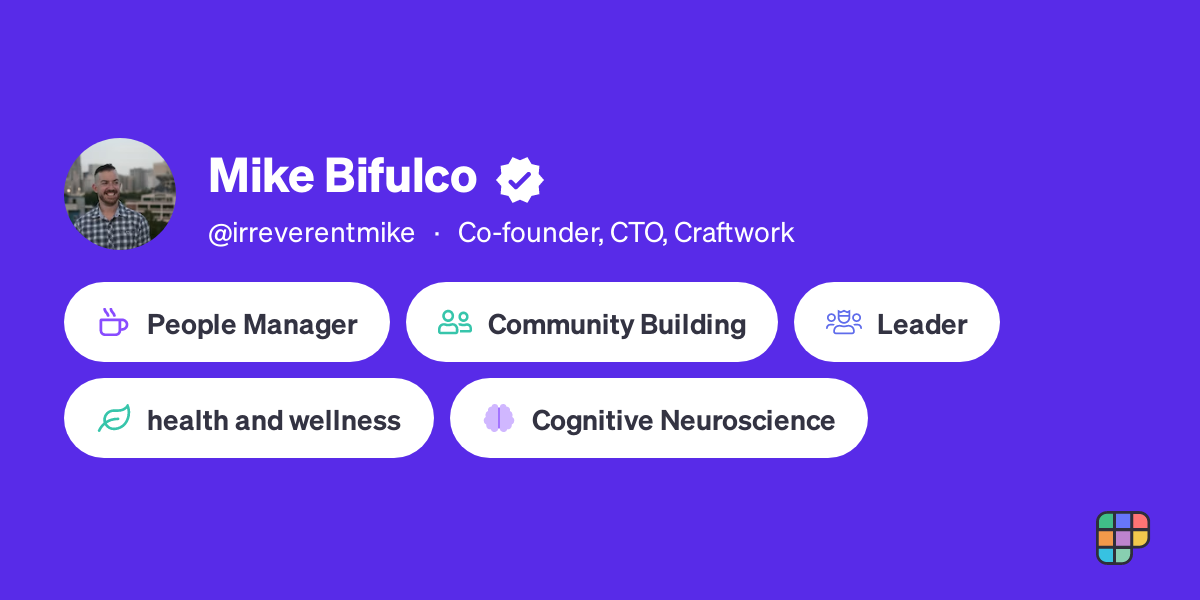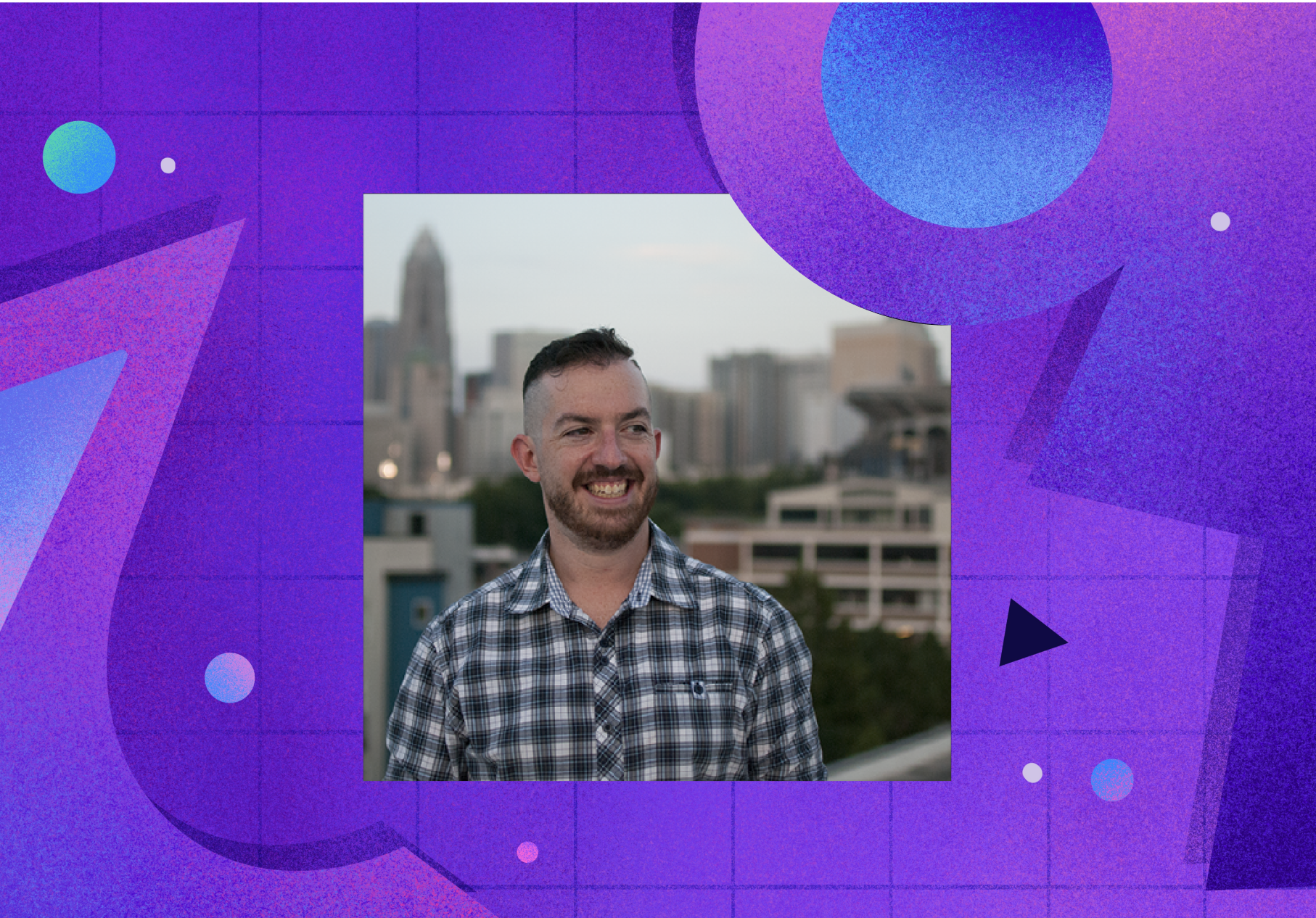It’s no coincidence that Mike Bifulco’s newsletter is called Tiny Improvements, which he explains is tied to a lifelong pursuit of personal growth that has come by way of small, incremental changes that have compounded over time.
His journey, and resulting popularity among developers and content creators alike, has been built upon a foundation of curiosity and intentionality that has guided him through career ups and downs to date.
“I guess I don’t fit the mold because I’m extroverted and social,” says the current co-founder and CTO of home painting startup Craftwork, adding that a lot of developers are dealing with a solitary mental challenge that has to be done at its own pace. “I have a seize-the-day attitude. There was this big inversion moment (in my career) and I realized that if I want to make things better, I have to be useful.”
This led him to writing at a prolific pace. Initially, this helped him as a developer advocate. “You have to show you have interest in other things. Devs sniff out when they’re being sold to.” he says, adding that he sees his site as a long-term resource to the community, and is having a lot of fun sharing what he’s learning.
But ultimately, it helped him find a community he could connect and grow with.
“For whatever reason, I was ready to be rigorous about it and do an article per week. Later on I hooked up analytics and found it was getting 1,000s of visitors,” which he says has helped him forge lifelong connections with more developers and creators.
“A manic fit of productivity”
Before understanding the Mike (or “Irreverent Mike”, as he refers to himself online) we see today, it’s worth taking a brief journey through his extensive career biography. Take a breath and let’s go.
His childhood curiosity (this will come back into play later) in building anything and everything led him down the path to programming, which made up a significant portion of his high school life.
Fast forward to college graduation in 2009, a period plagued by a deep recession, when a linear career path — and the idea of landing the “dream job” — felt firmly out of reach. “I sent out 300 job applications in a fit of manic productivity,” he says. “Maybe got a half dozen interviews and offers that weren’t too inspiring.”

A week or two before graduation, he ended up catching the eye of Microsoft, a job that would last seven years. “I was solving challenging/interesting/high-priority problems for some of the biggest companies in the world,” he recalls of his time in their consulting organization delivering software solutions to customers across the country. “It was fun, and definitely the kind of thing that a fresh-out-of-school kid would be surprised to be trusted with!”
He left Microsoft in 2014 due to the rigors of traveling and then served as technical director of Gymnasium, a code school. During that time, he co-founded Push the Pace, a gym/fitness service, where he spent nights/weekends while working at Gymnasium. After Push the Pace closed operations, he co-founded smpl, a SaaS product for coworking companies. After smpl was acquired in early 2020, with the pandemic looming, Mike started to move towards developer relations and advocacy, working at Google and Stripe.
Somewhere in between he co-founded APIs You Won’t Hate, described as the largest online community of API devs, and began delving into writing through his personal site. Since 2008, Mike’s written approximately 100 posts on his personal site of all “various shapes and sizes” as well, he says.

If that weren’t enough, his strong developer community ties have given him the opportunity to dip his toes in the podcast waters, serving as the occasional host of the popular Software Engineering Daily show.
“The fear that drives me is the fear of regret”
So why — and given the pace of his content creation, how — has Mike been able to fully embrace the multihyphenate life?
“The fear that drives me is the fear of regret,” he says. “Trying something and not liking it is fine by me, but if I didn't try something and find myself wondering what if... it feels way worse to me."
The fear that drives me is the fear of regret. Trying something and not liking it is fine by me, but if I didn't try something and find myself wondering what if... it feels way worse to me.
There’s also the practical side of being a prolific content creator – budgeting your time or looking for inspiration, all of which he’s also written about, emphasizing that “what matters is that you are consistent and authentic in your approach.”
“I remember giving a talk over the summer at Open Source Charlotte called “How do you build a brand and be a professional?” Something I got out of it was that sometimes people need to be given permission to ask for help or try something. The world is a better place when we can put something out there without worrying about seeing something back. It’s the butterfly effect of giving — I’ve found it way more fulfilling and easier to do.”
However, what may help Mike most is embracing the same childhood curiosity that’s helped guide him from the start.
“If I do it and don’t like it, I stop. I also feel pretty strongly about living by this philosophically. I may not know what I'm doing next. I see a door and know when to go through it. It’s not about knowing what to say no to and more about knowing what to say yes to,” he says.
It’s not about knowing what to say no to and more about knowing what to say yes to.
For Mike, pursuing each of his many interests has led to a “career growth butterfly-effect”, as he puts it.
“All of the big moves I've made in my career have been unexpected, and the result of the sum-total of everything else: trying interests, meeting people, starting to write, publishing my thoughts, having opinions,” he says. “I've gone from your-average-computer-science-graduate, to working at some of the biggest companies in the world, to CTO of a flourishing high growth startup thanks in no small part to these things.”
These little efforts have added up, he says. “They may have felt unimportant at the time, but they've amounted to something I couldn't have imagined. Now it's time to give back wherever I can.”



